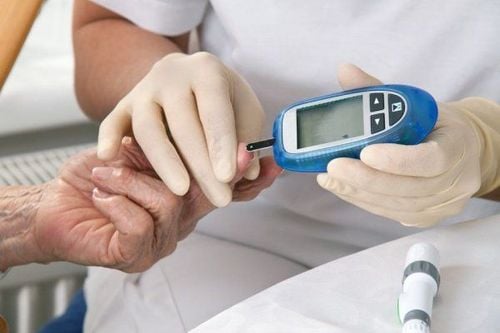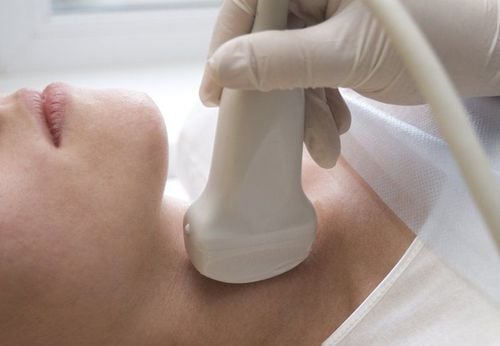This is an automatically translated article.
The article was consulted professionally with MSc. Doctor Vu Thi Duyen - Doctor of Nephrology - Endocrinology, Department of Examination & Internal Medicine - Vinmec Hai Phong International General Hospital.Currently, early diabetes screening can help patients avoid serious complications caused by diabetes such as: Eye complications causing blindness, kidney complications, neurological complications, heart and blood vessel problems. blood pressure, stroke risk, coronary heart disease, and peripheral vascular disease.
1. Prevalence of diabetes in Vietnam and in the world
According to the World Diabetes Federation (IDF), in 2015 worldwide, 415 million people (aged 20-79) had diabetes, equivalent to 1 in 11 people with diabetes. In 2040, this number will increase to 642 million, equivalent to 1 in 10 people with diabetes. Besides, along with the increased use of inappropriate foods, little or no activity increases the risk of type 2 diabetes, which tends to increase and become a serious public health problem because of complications of diabetes. the disease itself.Diabetes causes many dangerous complications and is a leading cause of cardiovascular disease, blindness, kidney failure, and amputation. But a more positive thing is that up to 70% of cases of type 2 diabetes can prevent or slow the onset of the disease when each person has a healthy lifestyle, proper nutrition and increased exercise. daily exercise.
Currently, the national rate of impaired glucose tolerance is 7.3%, and the national rate of fasting blood glucose disorder is 1.9% (in 2003). According to the results of the STEPwise survey on risk factors for non-communicable diseases conducted by the Ministry of Health in 2015, in the 18-69 age group, the national diabetes rate was 4.1%. diabetes was 3.6%.

Đái tháo đường gây nên nhiều biến chứng nguy hiểm, là nguyên nhân hàng đầu gây bệnh tim mạch
2. Who should be screened for diabetes?
According to the American Diabetes Association, everyone should be screened for diabetes at three-year intervals starting at age 45, especially those who are overweight or obese. For anyone with multiple risk factors, diabetes screening should be done at an earlier age and more often. The target group needs early screening for diabetes.Family history of diabetes (such as a parent or sibling with diabetes). Overweight (BMI>= 25 kg/m2. Infrequent physical activity Race/ethnicity (including African Americans, Hispanics, Native Americans, Asian Americans, and Americans) pacific islanders) History of impaired fasting glucose (IFG) or impaired glucose tolerance (IGT) ie prediabetes High blood pressure (>= 140/90 in adults) Dyslipidemia: HDL cholesterol <= 35mg/dL and/or triglyceride level >= 250mg/dL History of gestational diabetes or childbirth weighing more than 4.1Kg Polycystic ovary syndrome.

Người thừa cân, béo phì có nguy cơ cao với bệnh tiểu đường
3. Tests needed to screen for diabetes
A fasting plasma glucose test of at least 8 hours or a Hemoglobin A1c (HbA1c) test is used for screening or glucose tolerance testing.4. If the diabetes screening test is negative, what to do next?
If the diabetes screening test is negative, continue to have a follow-up screening test every three years or as recommended by your doctor. However, your doctor may do additional screening tests for you if they suspect that you have diabetes or pre-diabetes and your initial screening results are negative.5. If the diabetes screening test is positive, what should the patient do?
If the diabetes screening test is positive, it means that you have diabetes, then the endocrinologist will advise you on how to follow up treatment such as: can prescribe medication, advise on diet fit, regular exercise regimen and lifestyle changes. From there to help you control your blood sugar well and prevent serious complications as soon as possible.At Vinmec International General Hospital, we always deploy a screening package for diabetes and dyslipidemia to help detect pre-diabetes early, accurately classify diabetes type, develop a nutritional regimen, monitoring to minimize the risk and complications caused by diabetes.
Please dial HOTLINE for more information or register for an appointment HERE. Download MyVinmec app to make appointments faster and to manage your bookings easily.
Article references source: Who.int, Webmd.com












